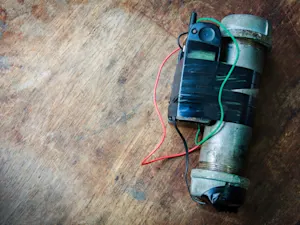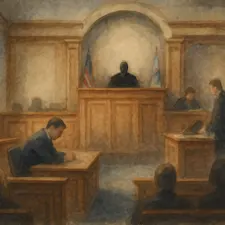
Judge Finds Cause for Contempt Charges Against Trump Admin
In a case stirring tension between two branches of the U.S. government, a federal judge has declared there is probable cause to hold the Trump administration in criminal contempt of court. At the heart of the matter? Two deportation flights that defied a direct judicial order — and the migrants on board who never got their day in court.
The Legal Standoff
U.S. District Judge James E. Boasberg issued a temporary restraining order on March 16, 2025, prohibiting the Trump administration from deporting Venezuelan migrants under the 1798 Alien Enemies Act.
The law, revived by President Trump in response to claims that the Venezuelan gang Tren de Aragua was "invading" the United States, according to NPR, had been used to deport well over 100 people to El Salvador — despite pending legal challenges.
But when Judge Boasberg learned that deportation flights were already en route, he delivered a stern in-court instruction: those planes must return. Hours later, according to AP News, El Salvador's president posted on social media, "Oopsie...too late," confirming the migrants had arrived.
And with that, a legal line had been crossed.
Contempt Charges Loom
Judge Boasberg's 46-page ruling didn't mince words. According to CBS News, he found the government's actions demonstrated a "willful disregard" for his order and hinted that the administration had acted "deliberately and gleefully" in defying the court.
The court has now given the administration until April 23 to either explain how it plans to remedy the situation — including taking custody of the migrants again — or name the individuals responsible for ignoring the judge's order. If the Department of Justice refuses to prosecute the case, Boasberg reportedly says he will appoint an attorney to do so himself.
What Sparked the Crisis?
The legal challenge stems from the Trump administration's invocation of the Alien Enemies Act to swiftly remove individuals it alleged were connected to criminal organizations. The administration deported at least 137 Venezuelan nationals to El Salvador, where they were reportedly sent to a high-security prison known as CECOT — a facility designed to house dangerous criminals.
Judge Boasberg's order was intended to preserve the right of these individuals to contest their removability in court — a foundational aspect of due process. However, the administration argued that the order came too late and was not written formally until after the flights had departed. Boasberg reportedly rejected that explanation, citing both oral and written directives that clearly stated the planes must return.
Trump Administration Pushes Back
The White House has insisted that the judge's ruling intruded on the president's authority to manage foreign policy and national security, asserting that Judge Boasberg had no right to issue the order. A DOJ spokesperson called the ruling a "judicial power grab" and vowed to appeal, as reported by NPR.
According to AP News, communications director Steven Cheung echoed that sentiment in a post on X, formerly Twitter, saying, "The President is 100% committed to ensuring that terrorists and criminal illegal migrants are no longer a threat to Americans and their communities across the country."
What Happens Next?
The clock is ticking. If the administration does not comply with Boasberg's demands by the deadline, contempt proceedings will move forward. At that point, individuals within the administration could face prosecution — an extremely rare move that would escalate an already historic clash between the judicial and executive branches.
The Supreme Court recently ruled that while the administration can proceed with deportations under the Alien Enemies Act, it must give individuals the chance to challenge their removals. But the high court did not absolve the administration from prior actions that violated judicial orders.
This legal showdown is just one of several immigration-related disputes between the Trump administration and the courts. For now, the key question is whether a sitting administration can ignore a judge's order without consequence — and whether the judicial system will assert its authority to enforce the Constitution.
References: Judge finds cause to hold Trump administration in criminal contempt for violating deportation order | Judge: 'Probable cause' to hold U.S. in contempt over Alien Enemies Act deportations | Judge finds probable cause to hold Trump administration in criminal contempt over removals of Venezuelan migrants to El Salvador























